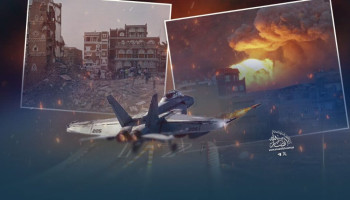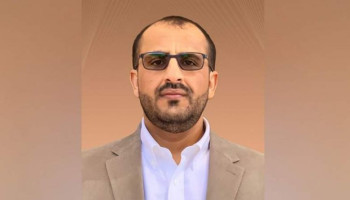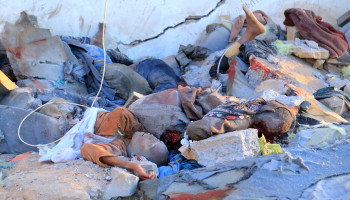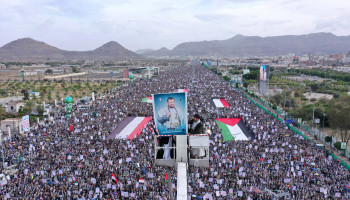UN: Canadian arms sales fuel conflict in Yemen
الخميس, 24 سبتمبر 2020
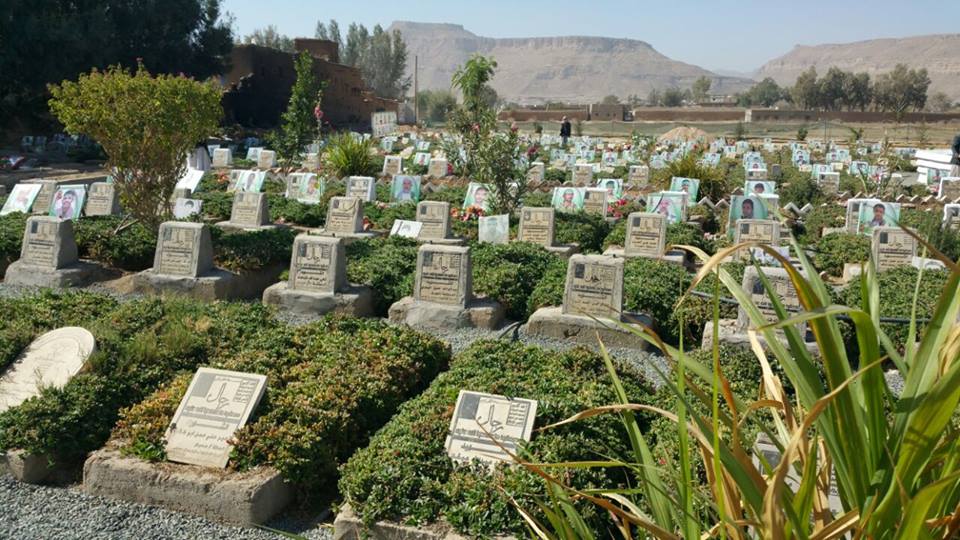
"The weapons supplied by Western powers, including Canada, to the warring parties in Yemen have fueled the conflict in Yemen for six years, and for the first time, Canada is being named as one of the contributors to the war in Yemen."
This is the observation made by the International and Regional Group of Experts on the War in Yemen, which studies the conflict in that country and investigates possible war crimes on behalf of the United Nations.
According to the UN panel of experts, the weapons supplied by western powers and Iran to the warring parties in Yemen have fueled the conflict, which has been engaged in recounting its chapters for nearly six years, with committee member Ardi Emes saying: "We added Canada this year because there is a high rate of arms sales in 2019," and also pointed out that other countries have been involved in fueling the conflict, which has been characterized by deadly air strikes by the Arab coalition countries under the banner of the Arab Kingdom of Saudi Arabia.
For its part, Britain, Canada, France, Iran and the United States of America continued to support the parties to the conflict, including through arms transfers, which helped to perpetuate the conflict.
In this photograph taken on August 25, 2018, Aslam department of the province of the north of Yemen - where this photograph was picked up - has often been the victim of severe deficiencies in the international aid system, a man feeds children foliage in this isolated and remote enclave in the north of the country, where Yemenis are often forced to eat boiled leaves from this endemic plant to avoid famine, as aid is not accessible to many families who need it most.
Lack of respect for the Yemeni people:
The UN Commission noted that after six years of armed and bitter conflict, all parties continue to show their lack of respect for international law or the lives or dignity and rights of people in Yemen, where investigators have found a series of repeated violations of international law, human rights and humanitarian law in this part of the world, and highlighted that all parties to the conflict continue to direct "systematic attacks against civilians" not only in the context of hostilities but also away from the front lines. In this conflict, there are no clean hands.
On the day of the report by the UN Panel of Experts, Melissa Park, a member of the committee, told reporters that responsibility for these actions is the responsibility of all parties involved, as all these violations have been and continue to be committed by the Yemeni government, recognized by the international community, the de facto authorities in the northern regions (Houthis), the Southern Transitional Council in the southern regions and members of the Saudi-led coalition and the UAE.
Air strikes on Yemen were conducted almost daily, showing an explosion sparking a cloud of smoke and dust as Arab-backed fighters advanced toward the Red Sea port city of Mocha as part of a campaign that eventually helped retake the city from Shiite Houthi rebels.
The list of human rights violations monitored in the UN report includes:
Arbitrary deprivation of life
Enforced disappearances
Arbitrary detention
Gender-based violence, including sexual violence
Torture and other cruel, inhuman or degrading treatment
Recruiting and using children in combat
Denial of the right to a fair trial
Violations of fundamental freedoms and economic, social and cultural rights.
In addition, the UN team concluded that some attacks by both the Arab coalition and the Houthis appeared to have been carried out without regard to the "principles of discrimination, proportionality and prudence" of the protection of civilians and civilian property, and also indicated that disproportionate and indiscriminate attacks constituted war crimes under customary international law.
Aid organizations said the Arab coalition's airstrikes have destroyed the country's vital infrastructure and that the coalition should do more to facilitate the delivery of fuel, food and medicine to Yemeni ports.
Tortured land:
"Yemen remains a tormented land and its population is so devastated that it should shock the conscience of humanity for what is happening to it," said Kamal al-Jandoubi, head of the UN expert group.
The Group reiterated the urgent need for a general ceasefire and a lasting and comprehensive peace, and urged the parties to take immediate action to put an end to ongoing violations and prevent further violations.
The Panel further stressed the need for all warring parties and the international community to take all necessary measures to ensure that perpetrators of violations in the Yemen war are held accountable and that victims exercise their right to compensation.
Houthi rebels have blocked half of humanitarian aid programs, as this is a tough tactic to force the agency to give them more control over the massive humanitarian campaign, according to aid officials and internal documents obtained by The Associated Press Foreign aid has been cut by $1 billion.
"The international community has a responsibility to end the epidemic of impunity and must not turn a blind eye to the serious violations committed in Yemen," he said.
After years of documenting the terrible cost of this war, no one can say "we didn't know what was going on in Yemen", responsibility is necessary to ensure justice for the Yemeni people and for humanity.
The official version of Yemen's report, Yemen: The Epidemic of Impunity in a Tortured Country will be presented to the Human Rights Council at its 45th session on September 29, 2020.
Source : Saba News Agency
Y.A

